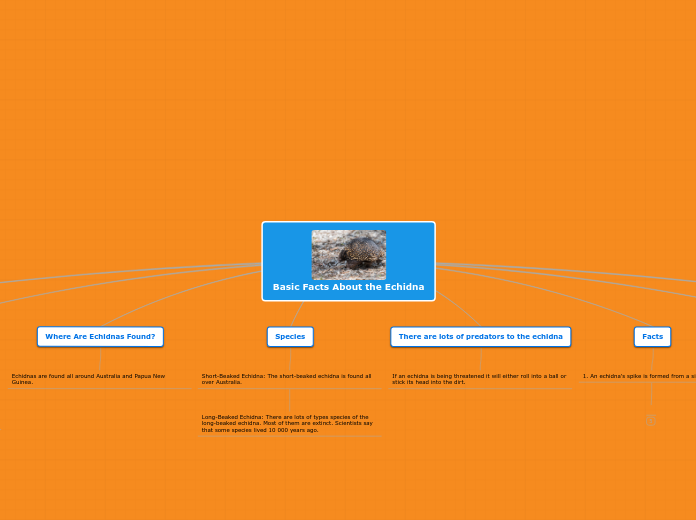
Basic Facts About the Echidna
Humans have changed the way animals have lived their lives, including the echidna.
Echidnas have adapted to the world by starting to lay soft-shelled eggs. Echidnas started to lay these type of eggs because the air was killing the baby echidna.
Mating
Mating happens on June and September, annually.
This is how it works: Eight males follow a female around for up to four weeks. The males push each other around, and the last one standing gets the female.
Where Are Echidnas Found?
Echidnas are found all around Australia and Papua New Guinea.
Species
Short-Beaked Echidna: The short-beaked echidna is found all over Australia.
Long-Beaked Echidna: There are lots of types species of the long-beaked echidna. Most of them are extinct. Scientists say that some species lived 10 000 years ago.
There are lots of predators to the echidna
If an echidna is being threatened it will either roll into a ball or stick its head into the dirt.
Facts
1. An echidna's spike is formed from a single hair
Type of Animal
The echidna is a type of monotreme. A monotreme is an animal
Digesting
An echidna cannot swallow the skeleton of their prey.
